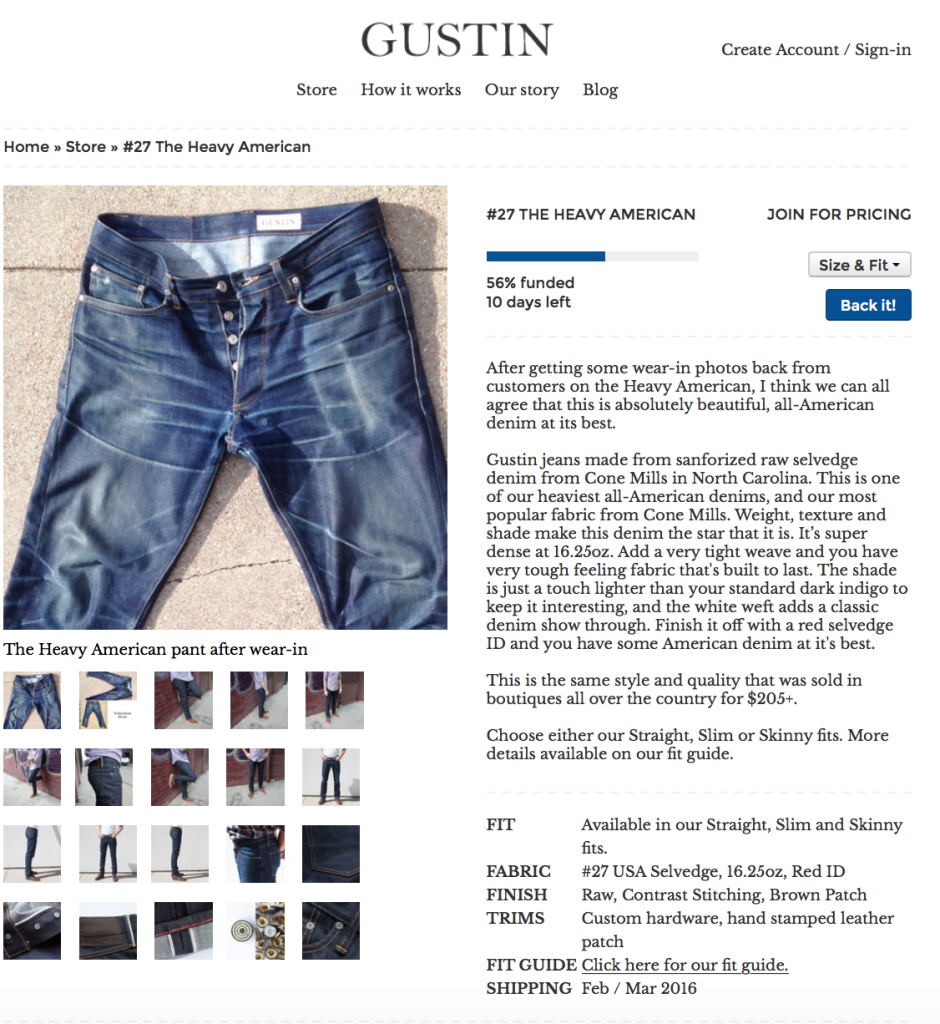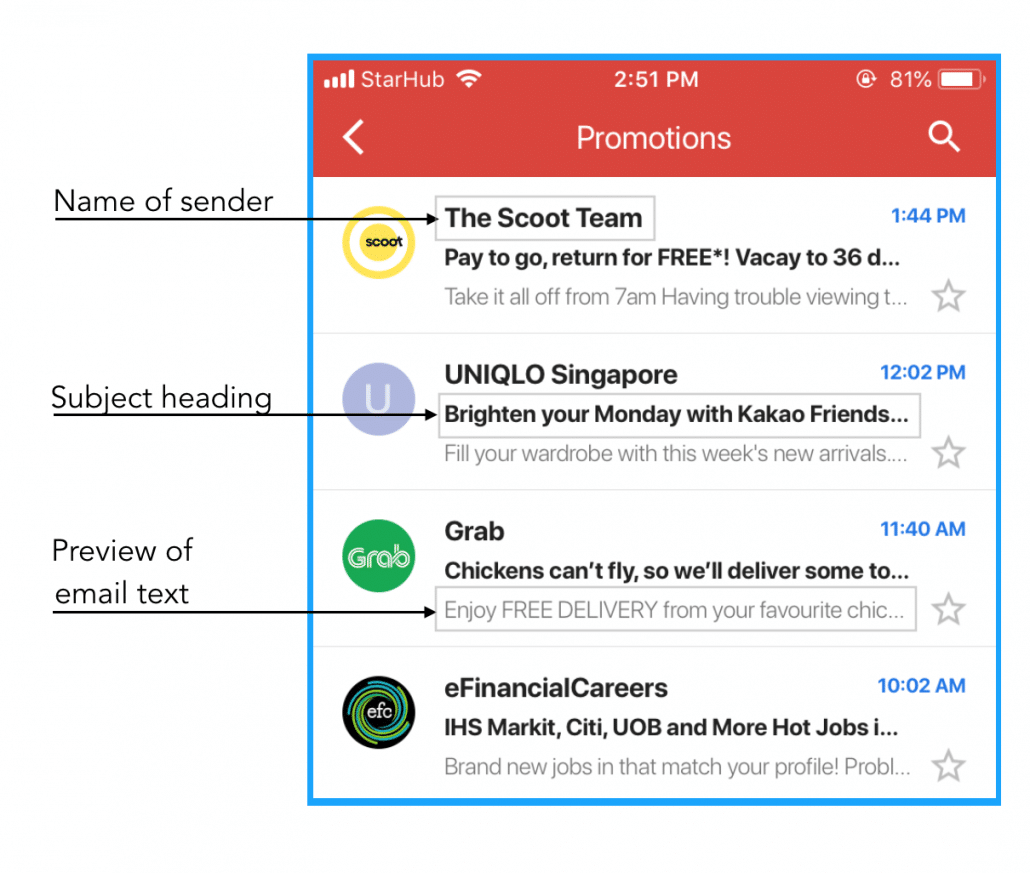Have you ever read a landing page, sales letter or even blog post which has unequivocally sold you on a product?
The type of content you start reading knowing little to nothing about the product itself, yet by the time you’ve finished you don’t just want what’s being offered, you’re convinced you need it. In fact, you look back on your life and wonder how you ever made it this far without it!
It’s the kind of copy we all wish we could create. As marketers we need our copy to have an effect, we want it to elicit emotions that prompt readers to take the next step, follow the call to action and convert into paying customers.
The question we all want answered is how.
Increasing conversions through your copy is as old as marketing itself. It’s a topic that’s been covered so many times it seems almost impossible to break new ground. There are articles on utilizing emotion to increase impact, the psychological principles behind purchase decisions and even articles examining the different formats of copy most conducive to higher conversions.
However, in our quest to come up with a new angle or theory on how best to use modern technological developments in CRO, we often overlook the most fundamental of steps. The effective use of language.
The language you use has the potential to take product descriptions, landing pages and long form letters from interesting or useful, to absolutely unforgettable.
It’s something all great writers know and exploit. They pepper their work with certain words that capture attention and elicit an emotional response.
Deconstruct any high performing piece of content or impactful speech and you’re sure to find a huge host of words that, whilst perhaps a little hyperbolic, add a much needed dose of gravity.
Take this speech from one of history’s most famous and highly regarded speakers and leaders, Winston Churchill as an example.https://www.youtube.com/embed/G4BVzYGeF0M
This relatively short speech is an amazing example of how a handful of properly placed compelling and relevant words can alter the impact of a text for the better.
Upon this battle depends the survival of Christian civilization
The whole fury and might of the enemy must very soon be turned on us
Hitler knows he will have to break us in this land or lose the war
But if we fail, then the whole world, including the United States, including all that we have known and cared for, will sink into the abyss of a new Dark Age made more sinister
The compelling words aren’t overused. They’re well placed and serve their purpose of adding much needed gravitas to the sentence. They ensure that each important point is completely unmissable and pulls at the emotional triggers of its intended audience.
And its something you can also include in your copy.
Now, I love Sir Winston as much as any other patriotic Brit, yet his goal was somewhat different from ours. Mentions of the ‘abyss’ would go down well for a country in the midst of war, but would likely come across as over hyped and try hard for a marketer promoting a product.
So, we’ll thank Sir Winston for highlighting the use of powerful language, but we’ll leave him there. It’s time now to turn to the words that motivate consumers to take up their wallets and combat the ever present enemy of last minute purchase resistance.
Words That Play on Pain Points
Fear is a powerful motivator. In fact, it’s probably the most powerful emotion when it comes to grabbing the attention of your prospects.
I’m not recommending you instill fear with threats of violence or Godfather-esque reprisals, that definitely wouldn’t do you much good in the world of CRO. Fear in the marketing world relates to the fears and worries of your target audience.
There are plenty of studies out there on how addressing pain points and offering a potential solution is the key to an increase in conversions. Here’s one from MarketingSherpa and another from Optimizely.com.
However, most of these articles focus on how to present the solution. What they ignore is the step that precedes this, the act of teasing the fear from your prospects to keep them fully engaged.
Before you present the solution, you’ve got to get the prospect worked up about the problem they face.
So, with that goal in mind, here are a few words that play on popular fears. Be sure to include them (sparingly of course) within your copy to really get the most out of your audience.
- Failure
- Hate
- Afraid
- Agony
- Danger
- Humiliation
- Alone
- Vulnerable
- Stress
- Death
- Pitfall
- Mistake
- Risk
- Devastating
- Stupid
- Warning
Words that Highlight Urgency
Whilst on the subject of fear, let’s examine another popular psychological theory that influences many conversion campaigns.
The fear of missing out.
A lot of the advice online tends to focus on highlighting the benefits of a product or service. That’s great, but think back to the last sale purchase you made and ask yourself if:
- The benefit of gaining the product was the driving force behind the purchase
- The fear of missing out on the deal drove you to commit to buying
The fear of missing out is far more powerful than the benefit of gain. It’s something that’s been studies dozens, if not hundreds of times and proven to be true.
One of the most interesting studies was conducted in 1975 and asked participants to value the cookies in two different jars. One jar had 10 cookies, the other only two.
Despite the cookies being identical, those in the near empty jar were valued more highly.
It’s strange, but that’s how we react to items that are scarce. We immediately place a higher value on something of which there is a lower quantity. The thought that we could potentially miss out on getting our hands on that perceived higher value product is enough to push anyone into action.
Scarcity has been one of the golden rules for conversion optimization for some time now. So what sort of words can you use to highlight the scarcity of your product thus increasing desire?
- Now
- Hurry
- Quick
- Limited
- Running Out
- Fast
- New
- Deadline
- Last Chance
- Final
- Never again
- Expires
Everyone Loves an Exclusive Deal
Building on our little foray into scarcity tactics, let’s take a dive into the world of exclusivity.
We all seem predisposed to want what we can’t have. Ever noticed the most popular clubs all have exclusive door policies? Wondered about the disproportionate price hike that accompanies an exclusive brand logo despite the quality being of negligible difference? Or the rumored benefits and connections accompanying exclusive societies and clubs?
Often, these exclusive offerings offer no greater benefit than pretentious bragging rights. People want to feel as though they’re a member of a small elite group. It’s a minor power trip that, if we’re being honest, we’d all revel in if we could.
Adding an exclusivity element to your copy increases the perceived value. It signals higher social status as it’s only available to the ‘few’ giving the bonus of being rather unique.
Clothing brand Gustin have exploited exclusivity to great effect with a crowdsourcing approach to production. After announcing a potential product an initial backing fee period is opened. If the financial target is reached, all those who backed the project can expect to receive their very own product.
However, once that target has been reached and product shipped, that project is over. This lends an element of exclusivity to each products. Not only are you going to receive a well made product, but you’re also now a member of a very small group of people who did.
It’s a great way to exploit our want for an exclusive product and has helped Gustin become a desired name in mens fashion.
So what sort of words can you include in your material to play on the consumer’s want for an exclusive product?
- Members Only
- Ask for an Invitation
- Be one of the few
- Become an insider
- Be the first to hear about…
- Only available to subscribers/existing customers
- Limited
- Class full
- Login required
A Little Reassurance is Always Appreciated
One of the biggest conversion killers is a shortcoming in the trust department.
There are so many sites around nowadays that it’s difficult for consumers to know who’s trustworthy and who isn’t. In fact, 77% of online users worry their data is going to be misused in some way.
Fear mongering, scarcity, exclusivity and any other triggers you employ are all well and good. But if you can’t get your potential customers to trust you, then what’s it all for?
Of course the primary trust building elements will include various trust seals, guarantees or testimonials. But what words can you use in your copy to bolster the claims made in these areas and reassure your prospects that you’re a trustworthy brand who’s not going to rip them off?
- Lifetime
- Guarantee
- Authentic
- Certified
- No obligation
- Dependable
- No risk
- Proven
- Secure
- Verify
- Safety
- Backed
- Endorsed
- Protected
- Unconditional
- Money back
- Genuine
Clandestine Approaches aren’t Wrong, They’re Sexy
Most of us never really step on the wrong side of the law. We follow the rules and ensure that everything we do is by the book. An admirable trait no doubt, but there’s always an attraction to the other side of life.
In fact, nearly everyone has some curiosity in those who choose to live their lives by less than legal measures. There’s a curiosity there, one which is a powerful allure to all of us. And it’s something that can be used to increase the effectiveness of your copy.
I’m not advocating any illegal methods or the breaking of any laws, rather the exploitation of human nature’s natural curiosity for rule breaking.
To help build a little intrigue, try utilizing some of the following secretive words that bring to mind forbidden methods.
- Secret
- Confidential
- Private
- Forbidden
- Controversial
- Confession
- Backdoor
- Insider
Two Words Necessary in Any Approach
Whether you’re playing on fear, inciting urgency or presenting the image of a somewhat clandestine offer, there are a few words that can help add that extra punch to your copy.
You
I shouldn’t need to explain this one. Good copy is always written with a single person in mind.
Consumers don’t want to feel like just another member of the crowd. They want to feel valued, the first step to achieving this is to talk to them as an individual.
When you’re writing copy for email lists you can go one step further and use their first name. Studies have shown hearing your own name causes your brain to activate and should cause your audience to become even more engaged in what it is you’re saying to them.
… Because…
One of the greatest words in the English language when it comes to persuasion.
If you want someone to take an action, you need to explain to them why they should do it.
Robert Cialdini conducted an experiment on the effect of providing a reason for an action. The test measured the willingness of those waiting in line to let another person cut in.
The experiment had three steps. In each, the person attempting to cut in would approach those in the line and ask them if he could use the machine first.
In the first step he simply said, “Excuse me, I have 5 pages. May I use the Xerox machine?” which received a 60% success rate.
Step two saw the introduction of a reason, “I have 5 pages. May I use the Xerox machine because I am in a rush?” receiving an impressive 94% success rate.
The final step saw the reason lessen in importance, “Excuse me, I have 5 pages. May I use the Xerox machine because I have to make copies?” which still received a very respectable 93% success rate.
People won’t take action unnecessarily. They want to be able to justify why they have done something so be sure to give them a reason.
Create Your Own Power Word List
Creating impactful copy is hard, especially in the modern era of high competition and diminishing attention spans.
Start your own list of power words that compel and sell. Every time you find yourself reading a landing page or sales letter that you simply can’t pull yourself away from, dissect it.
Read each line and pull out the words that add impact, meaning and emotion to the overall message. Find the words that compel you to continue and turn what would otherwise be just an interesting piece, into something you can’t put down and add them to your own list.
Before long, you’ll have a list of powerful words you can use in your own copy to keep your audience enthralled and engaged no matter what you’re trying to sell.
If you’ve already got a list or have your own power words guaranteed to perform, drop them in the comments below. I’d love to hear your thoughts and how we can expand on this list.









